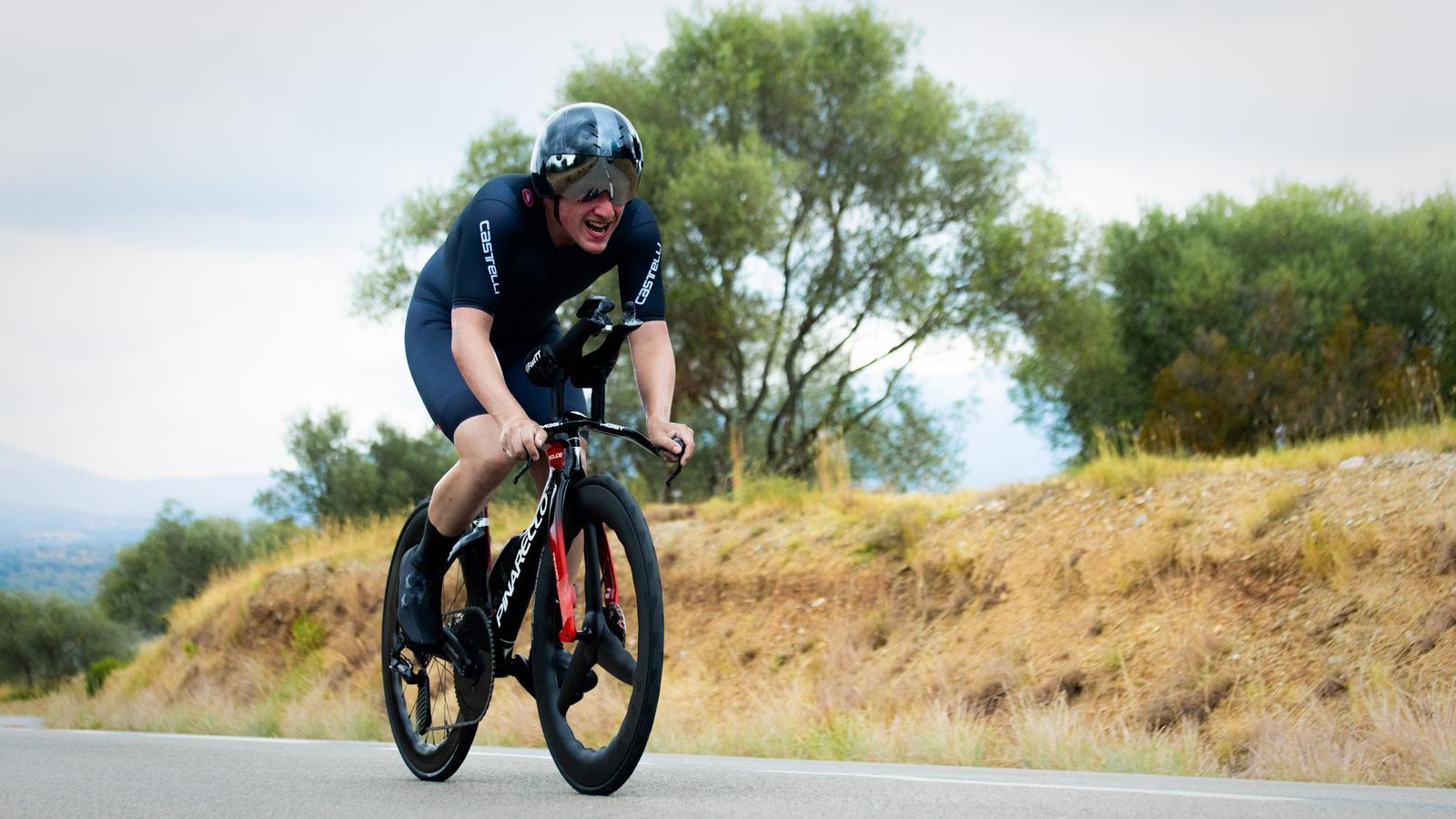From hitting rock bottom to dreaming of the Tour: "I was trapped in my own head"
Leo Hayter is a promising British cyclist who is learning Catalan in Girona while overcoming depression.

Girona"I felt guilty, but the fear of facing the problem outweighed my motivation to try to fix it. I was trapped in my own head. I remember days waking up, having breakfast, getting dressed to go out to train, and then lying on the couch for hours," says Leo Hayter (London, 2001). On August 16, 2024, he announced his temporary retirement due to depression, at just 23 years old. He had signed for the Ineos team as one of the British riders with the most promise: his trophy cabinet includes an Under-23 Giro d'Italia and a bronze in the Under-23 World Time Trial Championship. "I haven't been cycling in recent months, but I haven't lived either," he said in a letter titled My fightIn November, he posted his first activity on the Strava platform after months without touching the bike: 28.4 kilometers in one hour and eleven minutes, with the text "hat and unfit(fatty and out of shape). A few days ago he won the Catalan Time Trial Championship. It's been 426 days since I last wore my bib. Many, many more since I did a race I was really looking forward to," he wrote on Instagram.
In the letter, he admitted that he had been struggling mentally for five years and that he had reached rock bottom, a slave to his own and others' perceptions and expectations, and the fear of disappointing someone because of his improvement. "I always feel like there's a huge mountain to climb to get to the level I should be at," he explained. "I suffer from anxiety attacks constantly. My whole body freezes at times," he added. "In difficult times, my response was always to hide from everything: not answering messages or staying in my room," he said in conversation with ARA. Putting his phone on silent and locking himself in the "safety" of a bubble. "If it weren't for my girlfriend, I don't think I would have had any human contact in the last three months."
To try to escape anxiety, I turned to food. "As a professional cyclist, it's obviously not ideal, but for me it's uncontrollable. I'm sorry for all those who touch the davant and sovint em poso malalt. After I'll feel guilty for having menjat in excess and I'll kill myself with desire, they'll end up being completely broken again and I'll return to menjar all the ones who touch the davant. Això em porte a guanyar even though my objective is the opposite and això em cause more anxiety and the vicious circle continues." "Getting in shape and losing weight made me happy, but it only covered up the real problem. It was like putting a Band-Aid on a wound that needs stitches," he added. He had trouble sleeping. He was afraid of everything. Also go out. In case someone was found. What would they think if they saw that I had gained weight? Would they laugh at him for his appearance? What if they asked him where he'd been and what he'd done?
The diagnosis of depression
In May of last year, he hit "an all-time low" and was diagnosed with depression. "It was scary, but to be honest, it was also relieving. Because it confirmed to me that it was something medical and not just me, and it showed me that it could be changed," he explains. If he got off the bike, many rivals would overtake him, like in a race, but he felt he couldn't continue like this. He talks about the pain of having everything he had always pursued and wanted, but not being able to be happy, to enjoy it: "It was difficult because I felt like I was losing an opportunity he had worked his whole life for. But I wasn't happy." He speaks of the bitter feeling of knowing it was all in his head, but being unable to stop a self-destructive spiral. "I can see how stupid it really is, but that doesn't change the fact that it's what I feel," he said in the letter. "At the moment, it doesn't just feel like something inside my head, it's overwhelming," he argues now.
He left the Ineos team. He began therapy. "The advice is to find someone you trust to talk to. But above all, talk to a professional. No one can help you as much as a psychiatrist or a psychologist. It's also important not to get discouraged if you have a bad experience with a professional: not all therapy methods work for everyone," he says. "It's not as simple as a physical injury. I'm fine with that." He says it's harder to train your mind than your body. He wants to go back to being a professional and compete at the highest level. He's clearer that he never wants to be a cyclist, but that's not all he is.
What has he learned? "To put it bluntly, not to take everything so seriously. A bad workout, a bad meal, or a bad night aren't ideal, but they don't mean anything in the long run," says Hayter from Girona. He smiles. He's learning Catalan and in the afternoons he watches the Tour de France. Not for a nap, but to daydream.
